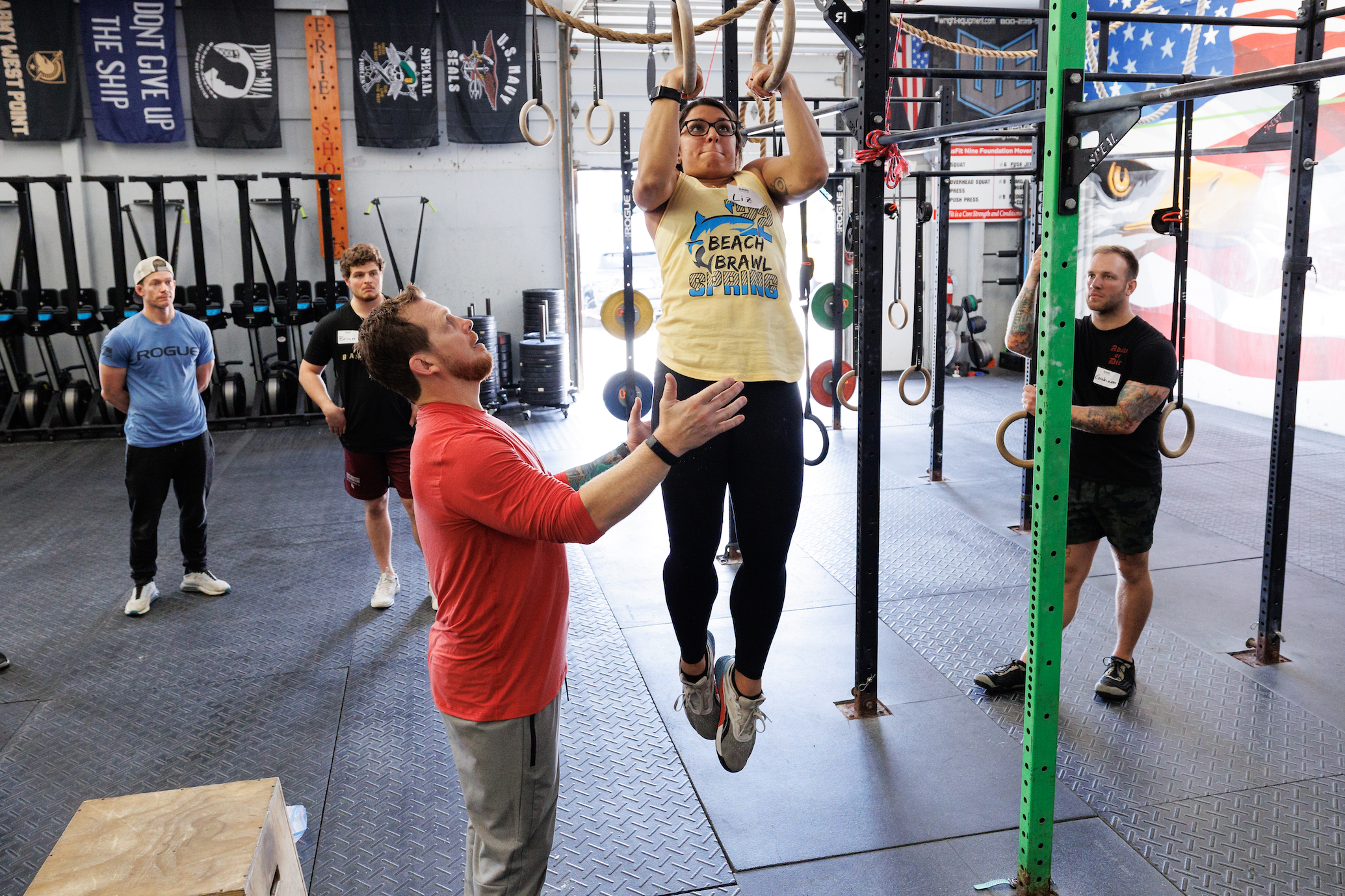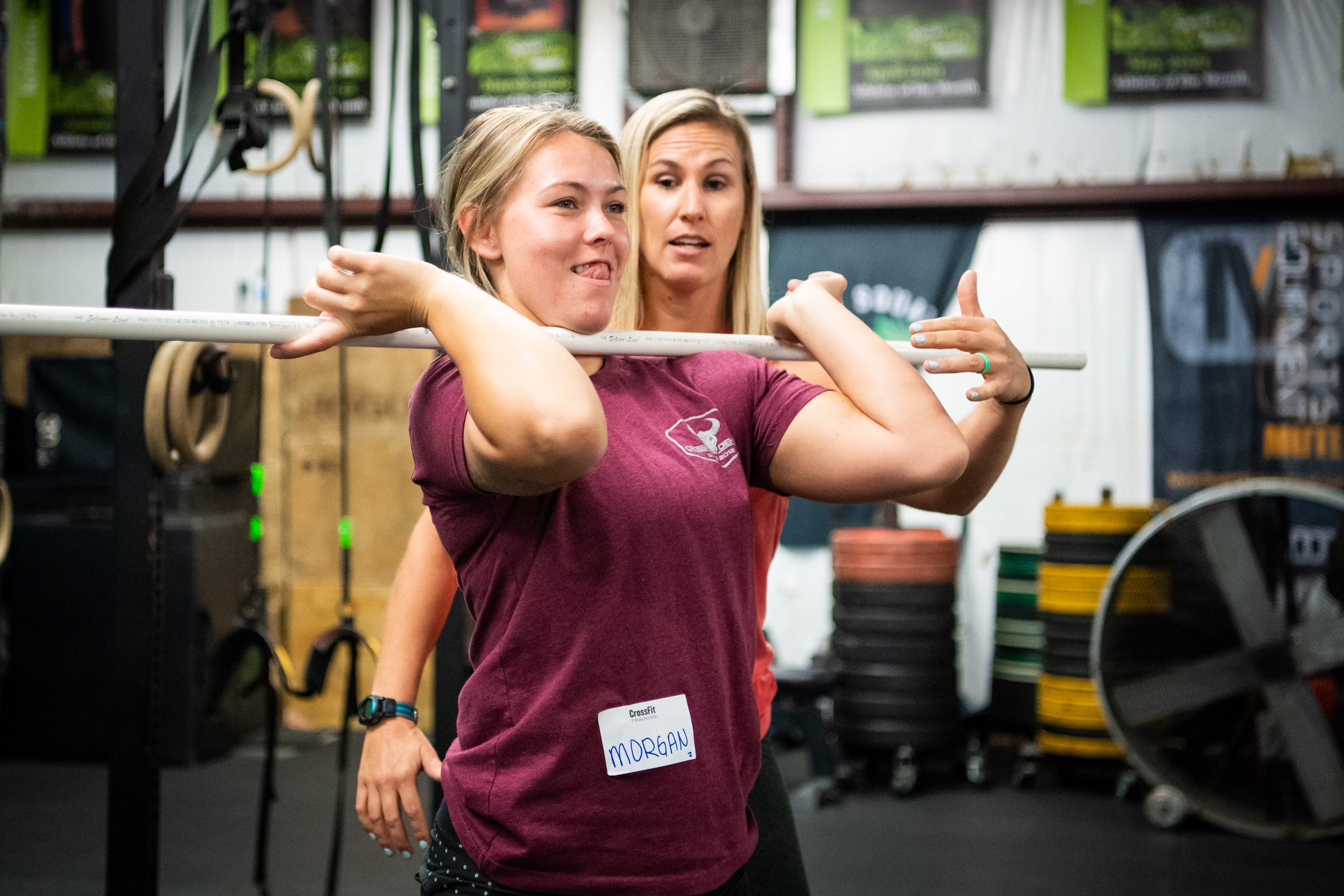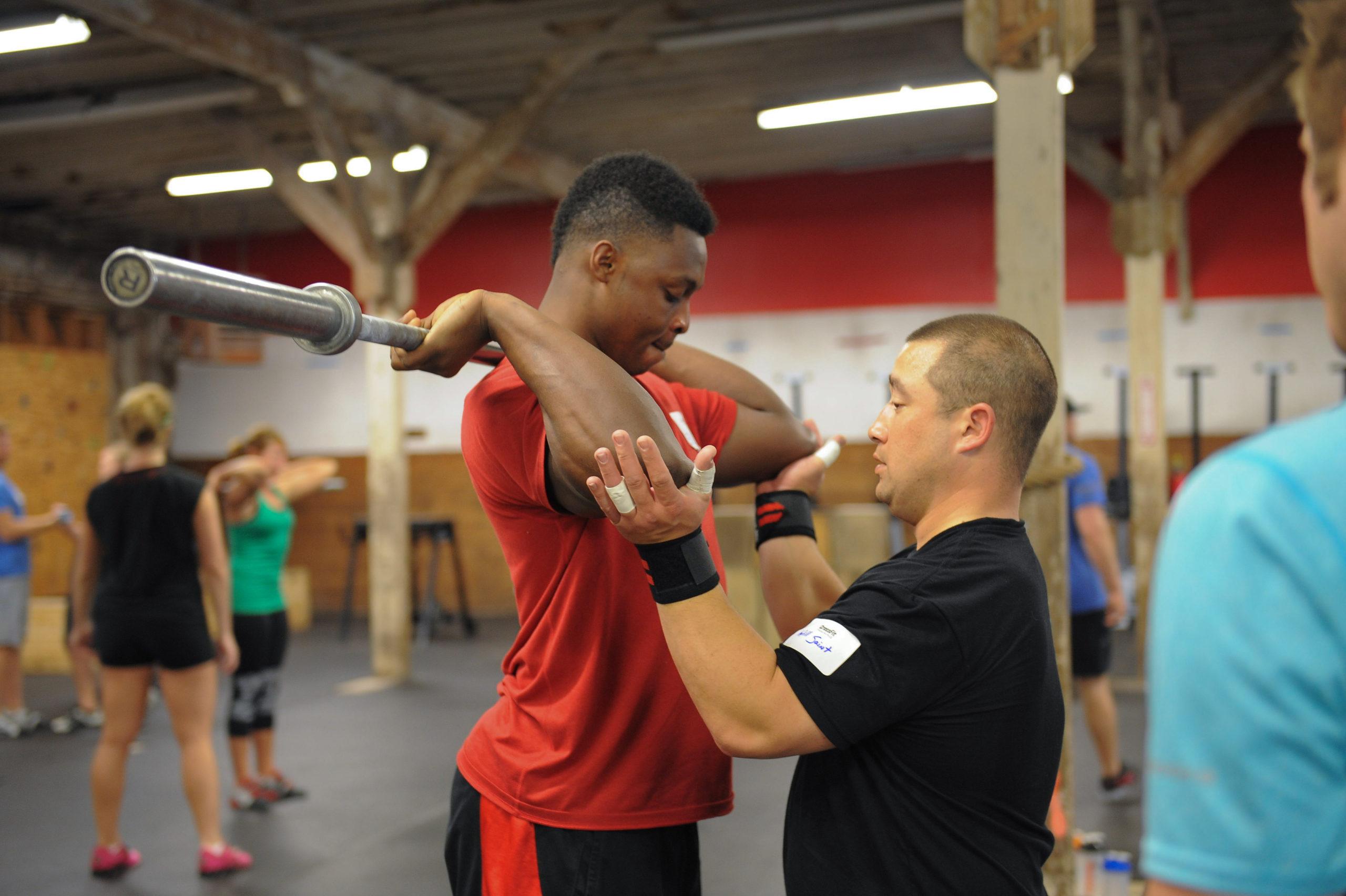I wrapped my fingers around the barbell, hands wide, preparing to execute the first pull of the snatch.
Deep breath — pull — shrug under — miss. The weight flew up, but it flew forward, too.
My coach, Sara, walked over and mimicked my snatch setup at the barbell.
“This is where your eyes were,” she said, head bowed toward the ground.
“Where your head goes, the body follows,” she continued, slowly pulling the barbell up — and forward — as she imitated the way I had looked up during the pull, not before it.
I needed to keep my gaze straight ahead from the very start, Sara told me.
I reached for the barbell again, staring at the wall ahead uncomfortably. It felt like I was lifting blind. How could I lift the bar if I couldn’t see the bar?
I cast her an apologetic look.
“I just lift better the other way,” I said.

Photo by Michael Patrick
Be Coachable; Get Results
In CrossFit — as in many things in life — work matters more than talent. It doesn’t matter where you start; if you give consistent effort, you will improve.
But there’s another critical factor: coachability.
“Being coachable means that the athlete is receptive to coaching even when uncertain about the effectiveness of the suggestion or correction from the coach,” said Nicole Christensen, Certified CrossFit Level 4 Coach (CF-L4). “They trust the coach and are willing to see what happens.”
There’s a reason CrossFit trainers are the best in the business: They’re coaches, not choreographers. Their job is to meet you where you’re at and guide you toward improvement — which oftentimes means working outside of your comfort zone.
As Matt Swift (CF-L4) writes:
“Coaching is about creating change. Great coaches produce great outcomes, in part, through what they do with athletes in the gym: teaching movement, identifying errors, cueing corrections, and pushing athletes to improve.”
But the best cues in the world won’t fix what an athlete isn’t willing to work on.
“Coachability directly relates to results,” said Michael Marrone, a Certified CrossFit Level 3 Trainer and Head Trainer on CrossFit’s Seminar Staff.
Resistance to coaching can take many forms. Sometimes, such as my case described above, it comes from a reluctance to experiment outside of the comfort zone. Other times, ego gets in the way.
But there’s good news: Coachability can be learned.
“I like to think of the process like this: Listen unguarded, process the feedback, implement the feedback, and evaluate the outcome,” Marrone said.

Don’t be surprised if it’s uncomfortable at first.
“Being coachable can feel uncomfortable because you are aiming to grow, and growth requires a level of vulnerability in recognizing and admitting the weaknesses we are aiming to address,” Marrone continued.
If you’re struggling to accept or implement a coach’s cue, pause for a moment. Listen. Ask for clarification. Then, trust in the expert you’re paying to help you improve — regardless of whether your goals are to compete at the CrossFit Games or stay fit enough to keep up with your kids.
“Being coachable doesn’t imply a desire to become an elite athlete, but it does imply the willingness to listen, which is directly correlated to staying safe, having fun, and learning some awesome stuff along the way,” Marrone said. “If you are listening to the coach, seeking feedback, and putting in the effort to implement that feedback, then you are coachable. It doesn’t matter if it takes one rep or one year to improve; if you are working with your coach and constantly striving for virtuosity, you are coachable.”
Still, the onus isn’t all on the athlete.
Coachability, Christensen says, is a two-way street.
“The athlete has to be open to coaching and correction, but the coach has to present with a level of credibility, depth of understanding, and effective communication to develop the relationship,” she said.
Pat Barber, CF-L4 and CrossFit Seminar Staff Trainer, agrees.
“In my mind, it truly is the coach’s responsibility to make an athlete coachable,” he said. “They need to build trust and rapport with people, so that no matter what is asked of them the willingness to do it is there.”
To do that, coaches need to show their athletes that they really care — about them as people as well as their goals in the gym. And that’s something that starts at the top, Marrone said.
“If an affiliate owner cultivates a gym where coaching — namely, teaching, seeing, and correcting — is not valued (or) implemented within every class and across every trainer, then you are setting up your gym for failure,” he said.

Knuckles Down, Eyes Up
Another day, in another workout, I once again found myself setting up for the snatch.
As I wrapped my fingers around the barbell, I thought about another weightlifting cue Coach Sara had given me: “knuckles down.”
At the time, I’d been cleaning and snatching with my knuckles facing forward around the bar — and the barbell had a tendency to fly away from my body in a wide arc. By rotating my hands about 90 degrees so that the knuckles faced down, the bar would be pressed closer to my body as it traveled upward.
I tried it, and in an instant, that one cue cut inches off my erratic bar path — so now, I thought, maybe I ought to give this whole “eyes up” thing a chance, too.
It still felt too weird to gaze straight forward for the whole setup, so I let myself stare down at the floor just until I’d established my grip. Then I sucked in a huge breath, snapped my head up, and pulled — sticking the catch and standing the weight up without a wobble.
Guess I should listen to my coach more often.
